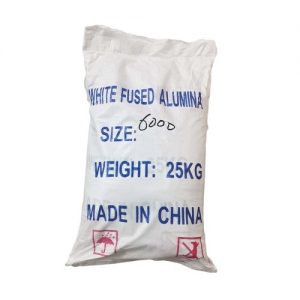On July 18, 2025, the European Commission issued an announcement, making an affirmative preliminary anti-dumping ruling on fused alumina originating in China and deciding to impose a provisional anti-dumping duty.
According to the announcement, the preliminary ruling is that Chongqing Saite Corundum Co., Ltd. will be subject to a provisional anti-dumping duty of 125.2%, Luoyang Runbao Abrasives Co., Ltd. will be subject to a provisional anti-dumping duty of 111.9%, Guizhou Guxin New Materials Co., Ltd., Qinai (Shandong) New Materials Co., Ltd. and other 21 other cooperative enterprises (see Table 1 for details) will be subject to a provisional anti-dumping duty of 118.8%, and other enterprises will be subject to a provisional anti-dumping duty of 136.3%.
The EU CN (Combined Nomenclature) codes of the products involved are 2818 10 11, 2818 10 19, ex 2818 10 91 and 2818 10 99 (TARIC codes are 2818 10 91 20 and 2818 10 91 90). The dumping investigation period of this case is from October 1, 2023 to September 30, 2024, and the damage investigation period is from January 1, 2021 to the end of the dumping investigation period.
It is understood that fused alumina is also called artificial corundum, covering white corundum (WFA), brown corundum (BFA), pink corundum, ruby corundum, etc., and is an important raw material for abrasives, refractory materials and other industries. The announcement stated that regardless of its commercial name, as long as it meets the characteristics or specifications specified in the relevant TARIC code description, it is included.
With the imposition of temporary anti-dumping duties, the price advantage of Chinese corundum products in the EU market will disappear. The high anti-dumping duties have caused the price of Chinese corundum products to rise sharply after entering the EU market, and the procurement costs of EU importers have soared. In this case, EU importers are likely to reduce their purchases from China and seek other alternative sources, such as India, Russia and other countries that also produce molten alumina (corundum).
This will directly lead to the severe squeeze of the market share of domestic corundum companies such as Saite Corundum and Luoyang Runbao in the EU market, and their export business will face severe challenges. In the case of fierce market competition, it is difficult for Chinese corundum companies to completely pass on this part of the increased costs to EU customers, and their profit margins will be severely compressed.
On the other hand, due to the obstruction of corundum export business, Chinese corundum companies may have excess production capacity. In order to digest the excess capacity, the above-mentioned companies may need to reduce prices to sell products in the domestic market, which will further lower domestic market prices and intensify competition in the domestic corundum market.
In addition, the above-mentioned enterprises need to invest more manpower, material and financial resources to deal with the problems that may arise in the follow-up of the anti-dumping investigation, such as providing more information, participating in hearings, etc. These additional costs will further increase the operating burden of Chinese corundum production enterprises.
For the entire corundum industry, the EU’s anti-dumping measures are undoubtedly a heavy blow. However, Chinese corundum enterprises cannot sit idly by, but should actively take countermeasures and strive to break the deadlock.
For corundum enterprises included in the investigation list, actively responding to the lawsuit is the key, and at the same time, they must increase their efforts to explore other international markets and reduce their dependence on the EU market. In the long run, it is also necessary to increase R&D investment and improve the added value and competitiveness of products through technological innovation in order to turn danger into opportunity in this international trade storm.

